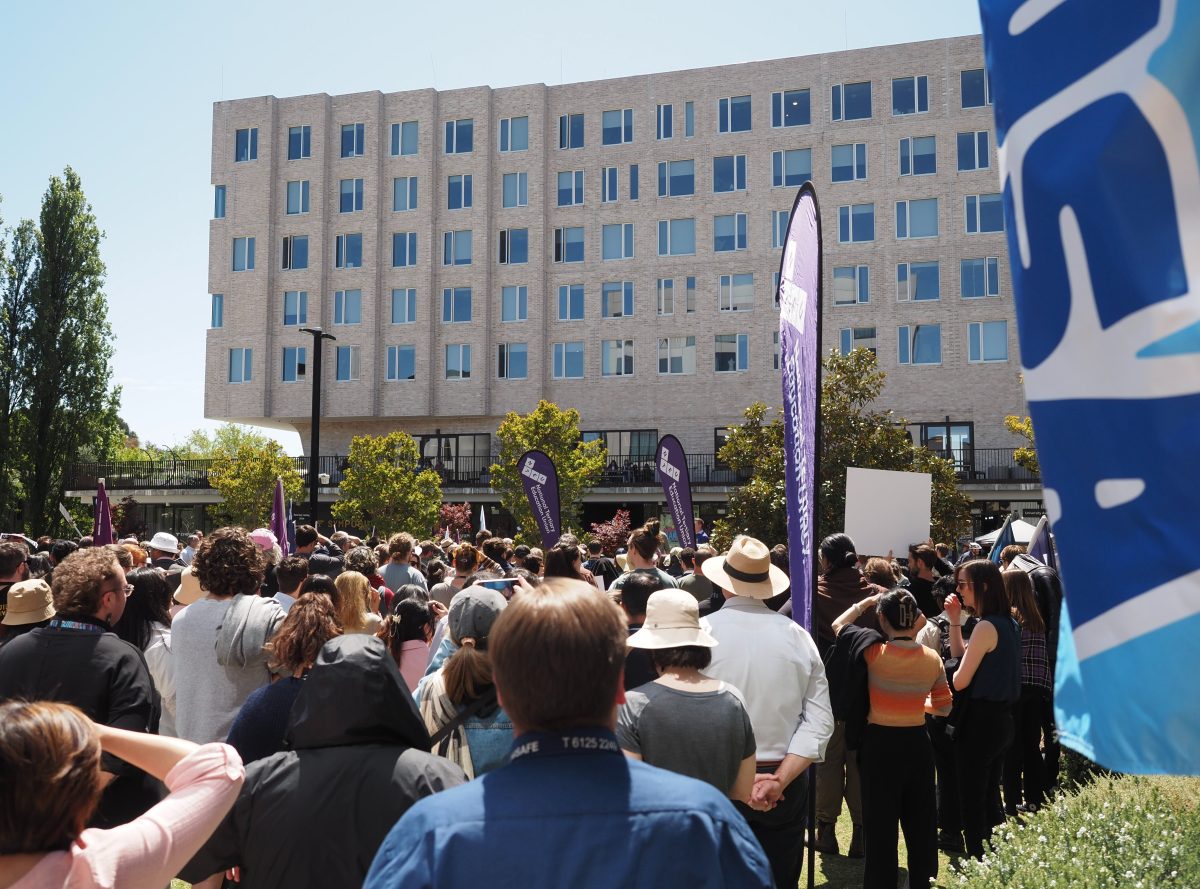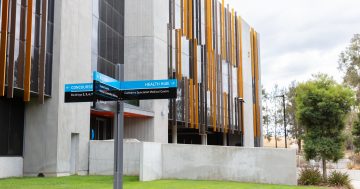
More than 600 jobs are expected to go under the cost-cutting plan of Professor Genevieve Bell AO, who took a 10 per cent reduction to her own $1.1 million salary to help meet ANU’s salary savings target. Photo: ANU/Andrew Mears.
After staff overwhelmingly (88 per cent) rejected the ANU’s offer to forgo their 2.5 per cent pay rise and prevent some job losses, there’s been a backlash against Vice-Chancellor Professor Genevieve Bell’s leaked plans for $250 million in cuts.
The National Tertiary Education Union (NTEU) claims staff have lost confidence in the VC and president of the ANU, who took over from Professor Brian Schmidt AC at the beginning of this year.
ANU branch president Millan Pintos-Lopez said staff were distressed and scared for their livelihoods as a result of the consequences of poor governance, financial management and a damaged workplace culture.
“Job cuts, on top of jacking up parking prices and threatening to remove the end-of-year closure, have eroded staff confidence in the vice-chancellor’s leadership,” he said.
“Morale is at an all-time low. Staff are miserable. ANU is not an enjoyable place to work, and that’s due to the vice-chancellor’s leadership culture.
“The vice-chancellor needs to spend less time hunting staff who speak up and more time working with us. University workers are the solution.”
The Australian Financial Review reported staff saying that Professor Bell was presiding over “a culture of fear” and she had allegedly told senior staff she would “find you out and hunt you down” if they leaked confidential information about the university’s planned cuts.
A couple days later, the masthead disclosed meetings held by provost Rebekah Brown and chief people officer Kate Witenden, where three of the ANU’s seven college heads were told the university’s governing council had lost confidence in them.
In these meetings, the deans allegedly were told to prepare to change management plans for their colleges by Friday (6 December). On the receiving end were Helen Sullivan (College of Asia and the Pacific), Kiaran Kirk (College of Science) and Bronwyn Parry (College of Arts and Social Sciences), according to The Canberra Times.

The ANU plans to cut spending on salaries by $100 million and non-salary spending by $150 million. Photo: NTEU.
Following the backlash incited by these allegations, 11 ANU senior executives sent an email to all staff on Friday afternoon in support of Professor Bell and the college deans.
“These articles are based on misrepresentations of institutional information,” the email read. “We are all trusted to keep such information confidential.
“Failing to do so is not only unprofessional, it affects many of our colleagues who, through this action, have had their character, integrity or performance brought into question.
“They also paint a false picture of the university’s culture, and this is why we have taken the step of writing this statement.
“As leaders of ANU, we fully support the strategic direction of council and the vice-chancellor and are grateful for their leadership through this period.”
This email was signed by Ms Brown, Ms Witenden, chief financial officer Michael Lonergan, chief operating officer Jonathan Churchill, chief marketing and communication officer Steven Fanner, chief information officer Paul Hargreaves, chief campus environment officer Jeremy Matthew, advancement vice-president Alex Furman, First Nations vice-president Peter Yu, academic deputy vice-chancellor Grady Venville, and research and innovation deputy vice-chancellor Lachlan Blackhall.
In early April, the ANU released a summary of its financial results for 2023, revealing an expected operating deficit of $105.1 million, which ended up being $132 million.
While this data was eventually released in its more detailed annual report, at the time, the university explained to the public that: “When our Annual Report is tabled, you will also see a reported net result of a surplus of $146.6 million. The difference between this result and our operating deficit of $132 million is mainly due to income from investments and insurance proceeds, both of which we are unable to use for operating expenses.
“Our $175.0 million in investment income is tied to supporting superannuation liabilities for our staff (which grow over time) and to endowments related to specific purposes such as perpetual scholarships.
“There is also $112.8 million of insurance payments that can only be used to repair the buildings damaged by the 2020 hailstorm.”
However, NTEU national president Dr Alison Barnes said what was unfolding at ANU was the result of a broader governance crisis affecting universities around the country and called for “an urgent federal parliamentary inquiry”.
“The Federal Government must tackle a broken governance system that has allowed outrageous vice-chancellor pay, systemic wage theft, cultural problems and financial waste to flourish,” she said.
Original Article published by James Day on PS News.


















